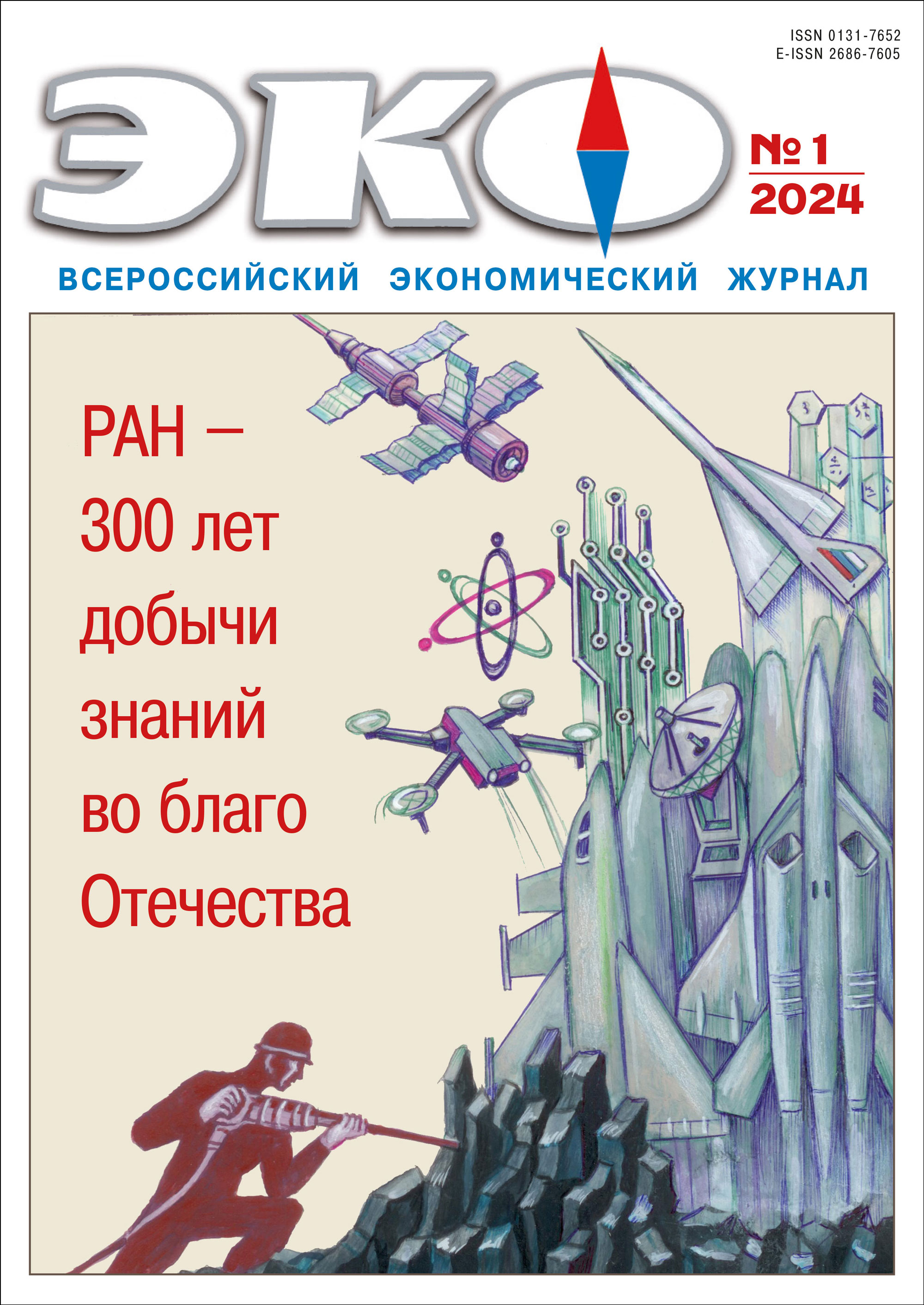Published 2024-02-06
Keywords
- administrative complaints; feedback; resource flows; distribution; handout economy
How to Cite
1.
Bessonova О. Why does Economy Need Complaints?. ECO [Internet]. 2024 Feb. 6 [cited 2026 Feb. 20];54(1):170-87. Available from: https://ecotrends.ru/index.php/eco/article/view/4711
Abstract
Administrative complaints (appealing to authorities according to established rules) in the scientific literature are usually considered as a socio-psychological phenomenon, which is often associated with the Russian paternalistic mentality. The article reveals the institutional nature of complaints and the mechanism of their influence on the formation of an economic model throughout the entire historical development of the country. Shown how complaints are widely understood in the scientific literature as a socio-psychological phenomenon associated with a specific Russian mentality of a paternalistic nature. The article reveals the institutional nature of complaints and the mechanism of their influence on the formation of an economic model throughout the entire historical development. It was found that in the Russian economy, the regulation of resource flows is carried out using the institution of administrative complaints. It is concluded that the modern economic system of Russia is increasingly reviving distributive practices of resource allocation in new institutional forms. This explains the expansion of the influence of the institute of complaints as a feedback signal on the Russian economy.References
- Анисимов Е.В. Государственные преобразования и самодержавие Петра Великого. С.- Петербург: Дмитрий Буланин, 1997. 332 с.
- Барлоу Д., Меллер К. Жалоба как подарок: обратная связь с клиентом – инструмент маркетинговой стратегии. М.: ЗАО «Олимп – Бизнес», 2006. 276 с.
- Бессонова О.Э., Кирдина С.Г., О’Салливан Р. Рыночный эксперимент в раздаточной экономике России: Демонстрационные проекты в жилищном хозяйстве. Новосибирск: Изд-во НГУ, 1996. 312 c.
- Бессонова О.Э. Раздаточная экономика России: эволюция через трансформации. М.: РОССПЭН, 2006. 144 c.
- Володин А.Ю. Жалобы рабочих в конце XIX – начале XX в.: механизм функционирования социальной информации // Бородкин Л.И., Хвостова К.В. (отв. ред.) Роль информации в формировании и развитии социума в историческом прошлом. М.: ИВИ РАН, 2004. С. 240–252.
- Дитятин И.И. Роль челобитных и земских соборов в управлении Московского государства. Статьи по истории русского права. СПб.: Русская мысль, 1895. 636 с.
- Корнаи Я. Дефицит. М.: Наука, 1990. 608 с.
- Кульпина К.П., Прудник А.В. Обращения граждан как паллиатив гражданского участия в самоуправлении и социальной политике. Вестник института социологии. 2010. № 1. С. 154–178. URL: http://www.vestnik.isras.ru/files/File/vestnik_is_2010_1.pdf
- Литвинцев Д.Б. Жалобы – не подарок: дисфункцио нальность института жалоб в сфере жилищно-коммунального хозяйства в России // Экономическая социология. 2022. Т. 23. № 4. С. 110–121. DOI: 10.17323/1726–3247–2022–4–110–121.
- Мухаматулин Т. Рец. на кн.: Франсуа-Ксавье Нерар. Пять процентов правды. Разоблачение и доносительство в сталинском СССР (1928–1941) // Laboratorium. 2015. Т. 7. № 1. С. 199–202. URL: https://www.soclabo.org/index.php/laboratorium/article/view/511
- Пайпс Р. Россия при старом режиме. М.: Независимая газета, 1993. 427 с.
- Соловьев С.М. История России с древнейших времен. Соч.: в 18-ти книгах. Книга 7. М.: Мысль, 1991. 752 с.
- Туган-Барановский М.И. Избранное. Русская фабрика в прошлом и настоящем. Историческое развитие русской фабрики в XIX веке. М.: Наука, 1997. 737 с.
- Хиршман А.О. Выход, голос и верность: Реакция на упадок фирм, организаций и государств. М.: Новое издательство, 2009. 156 с.
- Bogdanova E. Complaints to the Authorities in Russia: A Trap Between Tradition and Legal Modernization. 1st ed. London: Routledge, 2021. 240 p.
- Harris S. Communism on Tomorrow Street: Mass Housing and Everyday Life after Stalin. Washington DC: Woodrow Wilson Center Press; Baltimore: Johns Hopkins University Press, 2013. 414 p.
- Muravyeva M. The Culture of complaint: approaches to Complaining in Russian An Overview. Laboratorium, 2014. Vol. 6. No. 3. Pp. 93–104. URL: http://www.soclabo.org/index.php/laboratorium/article/view/471 (дата обращения: 10.04.2023).

